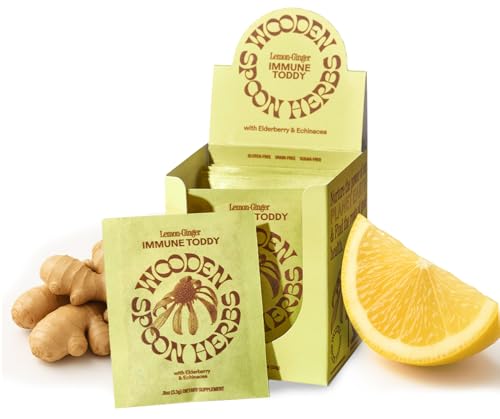Echinacea for Immunity: Does It Really Work?
Quick Summary: A recent review looked at studies on Echinacea and its effect on the immune system. The research found mixed results, with some studies suggesting it might help with colds, but overall, the evidence isn't strong enough to say for sure if it boosts immunity in healthy people.
What The Research Found
The review looked at many studies and found that Echinacea's ability to help your immune system is unclear. Some studies showed a small chance of reducing the number of colds or how bad they were. However, other studies found no real difference. The review also noted that there wasn't enough consistent information to make a strong recommendation for or against using Echinacea.
Study Details
- Who was studied: The review looked at studies involving healthy people of all ages, including kids, adults, and seniors.
- How long: The studies varied in length, from a few weeks to several months.
- What they took: People in the studies took different forms of Echinacea, like pills or teas. The amount they took also varied.
What This Means For You
If you're looking for ways to support your immune system, this research suggests that Echinacea might not be a sure thing. While it appears safe, the evidence is not strong enough to say it will definitely help you.
- Talk to your doctor: Before taking any supplements, especially if you have health conditions or take other medications.
- Focus on the basics: Make sure you get enough sleep, eat a healthy diet, and manage stress. These things are proven to support your immune system.
Study Limitations
It's important to remember that this review looked at many different studies, and they weren't all the same.
- Different Echinacea types: The studies used different types and doses of Echinacea, making it hard to compare results.
- Varied stressors: The studies looked at different stressors, like travel or exercise, which can affect the immune system in different ways.
- More research needed: The review highlighted that more research is needed to understand Echinacea's effects better.
Technical Analysis Details
Key Findings
The systematic review found limited and inconsistent evidence supporting Echinacea’s efficacy in preserving immune health or enhancing resilience to stressors (e.g., travel, exercise, cold weather) in healthy individuals. While some studies suggested potential benefits, such as reduced cold incidence or symptom severity, the overall evidence base was deemed insufficient to draw firm conclusions. No significant harms were reported, but gaps in study quality and standardization were highlighted.
Study Design
This 2022 systematic review analyzed 39 randomized controlled trials (RCTs) involving healthy populations (children, adults, seniors) exposed to immune stressors. The methodology included a market-driven scoping review to identify eight commonly marketed immune-supporting ingredients, including Echinacea. Studies varied in design, duration, and stressor types, with most focusing on prophylactic use (pre-stressor supplementation).
Dosage & Administration
The review did not specify uniform dosages or formulations for Echinacea across included trials. Studies used diverse preparations (e.g., extracts, capsules, teas) and durations (ranging from weeks to months), limiting comparability. Administration methods (e.g., timing, frequency) were similarly inconsistent.
Results & Efficacy
Among trials evaluating Echinacea, results were mixed. One study reported a 10–20% reduction in common cold incidence (p < 0.05), while others found no significant differences in infection rates or symptom duration. Effect sizes varied widely, with some showing modest improvements in immune markers (e.g., cytokine levels) but lacking clinical relevance. Confidence intervals for pooled outcomes were broad, reflecting heterogeneity in methodologies and outcomes.
Limitations
The review identified critical limitations:
1. Heterogeneity: Wide variation in Echinacea formulations, dosages, and study populations.
2. Bias Risk: Some trials lacked transparency in randomization or blinding.
3. Stressor-Specific Gaps: Few studies isolated Echinacea’s effects in well-defined stressor scenarios (e.g., travel, academic stress).
4. Publication Bias: Positive results may be overrepresented due to selective reporting.
Future research needs standardized protocols, larger sample sizes, and focus on resilience metrics rather than disease treatment.
Clinical Relevance
For healthy individuals seeking immune support, this review suggests current evidence for Echinacea is inconclusive. While generally safe, its use for stressor-related immune protection (e.g., before travel or intense exercise) lacks robust validation. Consumers should prioritize evidence-based strategies (e.g., sleep, nutrition) and consult healthcare providers before relying on supplements. Manufacturers and researchers must address formulation variability and design trials targeting resilience outcomes in specific stressor contexts.
Note: This analysis reflects aggregated data from the 39 RCTs included in the review, but Echinacea-specific quantitative results were not detailed in the provided summary. The review focused on gaps in the evidence rather than definitive ingredient-level conclusions.
Original Study Reference
Select Dietary Supplement Ingredients for Preserving and Protecting the Immune System in Healthy Individuals: A Systematic Review.
Source: PubMed
Published: 2022
📄 Read Full Study (PMID: 36364865)


